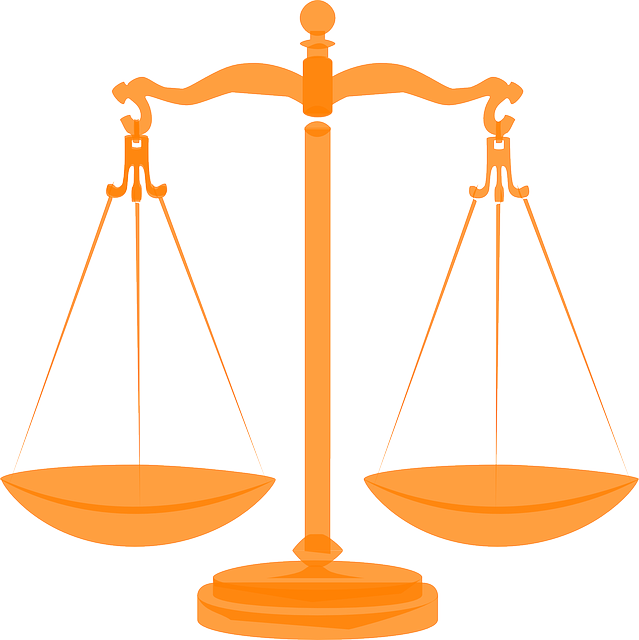Corporate Crime Investigations uncover illegal activities within organizations, demanding a rigorous approach to expose truth hidden in vast data. Specialized law enforcement agencies and regulatory bodies prosecute these crimes, ensuring accountability. Class Action Lawsuits (CALs), empowering individuals to collectively hold corporations accountable, require demonstrating legal connections between misconduct and harm. Specific guidelines and key factors determine eligibility, maximizing potential outcomes for plaintiffs. Strategic planning, analyzing crime nature, stakeholder impact, and evidence strength, combined with robust defenses and support from philanthropy and politics, help manage legal complexities post-investigation.
Corporate crime investigations are a critical aspect of ensuring business integrity and accountability. This comprehensive guide explores the intricate world of uncovering corporate fraud, focusing on complex schemes and their legal implications. From the role of law enforcement and regulatory bodies to the impact of class action lawsuits, we delve into strategies for success. Understanding eligibility requirements for plaintiffs in corporate fraud cases is key; this guide provides a detailed roadmap for navigating the legal landscape post-investigation.
- Understanding Corporate Crime Investigations: Uncovering Complex Schemes
- The Role of Law Enforcement and Regulatory Bodies in Corporate Crime Prosecution
- Class Action Lawsuits: A Collective Approach to Holding Corporations Accountable
- Eligibility Requirements for Plaintiffs in Corporate Fraud Cases: A Comprehensive Guide
- Strategies for Success: Navigating the Legal Landscape After a Corporate Crime Investigation
Understanding Corporate Crime Investigations: Uncovering Complex Schemes
Corporate Crime Investigations delve into the intricate web of activities that can lead to complex schemes and illegal practices within organisations. These investigations require a meticulous approach as they often involve financial manipulations, fraud, or breaches of ethical standards that may have far-reaching consequences. Detectives must navigate through vast amounts of data, from financial records to digital footprints, to uncover the truth behind allegations.
Understanding the dynamics of corporate crime is crucial for determining Class Action Lawsuit Eligibility Requirements. When a respective business engages in misconduct, it can impact numerous individuals or entities. For his clients seeking justice, investigations aim to expose these schemes, avoiding indictment while ensuring accountability. This process involves a delicate balance between uncovering evidence and preserving legal rights during what may be a challenging and labyrinthine process.
The Role of Law Enforcement and Regulatory Bodies in Corporate Crime Prosecution
Law enforcement agencies and regulatory bodies play a pivotal role in the prosecution of corporate crimes, ensuring accountability and deterring future misconduct. These entities are equipped with specialized units dedicated to investigating financial irregularities, fraud, and other corporate malfeasances. Their expertise lies in gathering evidence, interviewing witnesses, and deciphering complex financial transactions, often involving international jurisdictions. The collaborative efforts between law enforcement and regulatory bodies significantly enhance the success rate of corporate crime investigations.
When a corporate crime is suspected, these agencies spring into action, leveraging their extensive resources and networks. They work tirelessly to unravel intricate schemes, holding individuals and organizations accountable through criminal charges and class action lawsuits. Ensuring compliance with eligibility requirements for such lawsuits, which often involve significant financial damages, is crucial. The unprecedented track record of these bodies in securing justice reflects their effectiveness in protecting the interests of victims across the country and within philanthropic and political communities.
Class Action Lawsuits: A Collective Approach to Holding Corporations Accountable
Class Action Lawsuits (CALs) offer a powerful collective approach to holding corporations accountable for their misdeeds. These lawsuits are initiated when a significant number of individuals or entities come together, sharing a common interest and experience of harm caused by corporate misconduct. Unlike individual suits that may be limited in scope and financial recovery, CALs pool resources and claims, enabling more substantial compensation and punitive damages. The collective nature of these actions ensures that victims, often with varying degrees of involvement or knowledge, can still find justice and economic relief.
To establish eligibility for a Class Action Lawsuit, potential plaintiffs must meet specific criteria. These requirements include demonstrating a strong legal connection between the defendants’ conduct and the resulting harm, as well as showing that the interests of the larger group are aligned and representable. The process involves all stages of the investigative and enforcement process, with attorneys for his clients playing a pivotal role in gathering evidence, identifying patterns, and navigating complex legal frameworks. By pursuing CALs, individuals can contribute to deterring future corporate crimes while ensuring that their respective businesses operate within ethical and legal boundaries.
Eligibility Requirements for Plaintiffs in Corporate Fraud Cases: A Comprehensive Guide
When it comes to corporate fraud cases, understanding the eligibility requirements for plaintiffs in a class action lawsuit is paramount. To be considered for participation in a class-action suit, individuals or entities must meet specific criteria set by courts and legal experts. These requirements ensure that those involved have a legitimate claim and stand a chance of achieving significant results through collective action.
Key factors that influence eligibility include the nature of the alleged fraud, the extent of individual harm, and the ability to demonstrate damages. Plaintiffs with substantial financial losses or those who can showcase an unprecedented track record of corporate misconduct are often prioritized. The goal is to aggregate a diverse group of affected parties, ensuring a robust case that can lead to winning challenging defense verdicts and securing justice for all involved.
Strategies for Success: Navigating the Legal Landscape After a Corporate Crime Investigation
After a corporate crime investigation, navigating the legal landscape can seem daunting. However, with a well-planned strategy, companies can effectively manage potential outcomes. One key approach is understanding eligibility requirements for a class action lawsuit, which can aggregate damages and provide greater leverage against wrongdoers. This involves scrutinizing the nature of the crime, its impact on stakeholders, and the strength of evidence gathered during the investigation.
A successful strategy encompasses both general criminal defense tactics and achieving extraordinary results. Companies should consult legal experts who specialize in corporate investigations to build a robust defense. Furthermore, leveraging the support of philanthropic and political communities can mitigate damage and foster transparency, demonstrating a commitment to ethical business practices beyond compliance.
Corporate crime investigations are complex, multi-faceted endeavors that require coordination between law enforcement and regulatory bodies. Understanding the intricacies of these cases, such as the role of class action lawsuits and eligibility requirements for plaintiffs, is crucial for navigating the legal landscape effectively. By employing strategic approaches and staying informed about evolving regulations, individuals and entities can ensure justice is served and accountability is maintained in corporate fraud cases.






